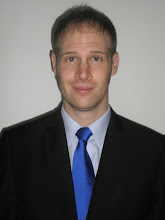
"You ran into people wherever you went, except the mail box (laughs), never at the mailbox! When I would go shopping at the Giant in Wilde Lake, it would take me literally hours to get out of there, not that I was shopping so much but you know you'd have a conversation in every isle, in isle four with Helen and you know that's how it was with everybody. You'd go to the grocery store and you'd spend an eternity there because you met everybody you knew and you just had conversations."
One summer day in 1967, Barbara and Charles Russell were driving down Route 29 from Baltimore to visit friends in Rockville when they noticed the do not enter sign near the development of Columbia had been removed, so they entered. In July, they moved in, become two of the first 100 residents in Columbia.
"There was almost nothing in Columbia at the time, there wasn't even a village center. In fact, when we drove around there were these little muddy circles and we asked somebody what they were and they said oh those are going to be cul-de-sacs. And we said what the heck are cul-de-sacs?"
At the time, the Russells had followed their jobs at the Social Security Administration from California. Before moving to Columbia, they had lived in Woodlawn and even had to get married in Washington D.C., because it was illegal for an interracial couple to marry in Maryland.
"When I married Charles, my family was dead set against it and they felt and told me that they thought that I would forever be living on the fringes of society and my children."
Russell says that for most of the early residents, Columbia was their first experience in an integrated community. She recalls the day an older couple moved into the apartment above them. They mistook Charles for the maintenance man, requesting that he help them move in.
"So he did, he helped them move their stuff upstairs and when he was all finished he said let me introduce myself, I'm your neighbor Charles Russell, from the apartment down below."
42 years later, Russell thinks things have changed, that after James Rouse stopped driving the Rouse Company, the bottom line took the wheel instead of the vision. In her mind, the biggest problem of early Columbia was public transportation. When asked about current problems, she spoke about General Growth Properties.
"GGP is not giving anything to the county, it just wants the density and zoning changes worth billions and is not agreeing to pay for the costs of infrastructure to pay for affordable housing, to pay for cultural amenities, its not, it doesn't want to pay and hasn't promised to pay and hasn't agreed to pay for anything. And now it can't afford to pay for anything. And so it would be in my mind, a real rip if you will off to the taxpayers, to allow them to do that without any of the trade offs."


No comments:
Post a Comment